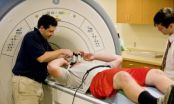(Press-News.org) New Haven, Conn.—A team of Yale University scientists has engineered the cell wall of the Staphylococcus aureus bacteria, tricking it into incorporating foreign small molecules and embedding them within the cell wall.
The finding, described online in the journal ACS Chemical Biology this week, represents the first time scientists have engineered the cell wall of a pathogenic "Gram-positive" bacteria—organisms responsible not only for Staph infections but also pneumonia, strep throat and many others. The discovery could pave the way for new methods of combating the bacteria responsible for many of the most infectious diseases.
The team engineered one end of their small molecules to contain a peptide sequence that would be recognized by the bacteria. In Staphylococcus aureus, an enzyme called sortase A is responsible for attaching proteins to the cell wall.
"We sort of tricked the bacteria into incorporating something into its cell wall that it didn't actually make," said David Spiegel, a Yale chemist who led the study. "It's as if the cell thought the molecules were its own proteins rather than recognizing them as something foreign."
The scientists focused specifically on the cell wall because it contains many of the components the cell uses to relate to its environment, Spiegel said. "By being able to manipulate the cell wall, we can in theory perturb the bacteria's ability to interact with human tissues and host cells."
The team used three different small molecules in their experiment — including biotin, fluorescein and azide — but the technique could be used with other molecules, Spiegel said, as well as with other types of bacteria. Another advantage to the new technique is that the scientists did not have to first genetically modify the bacteria in any way in order for them to incorporate the small molecules, meaning the method should work on naturally occurring bacteria in the human body.
Staph infections, such as the drug-resistant MRSA, have plagued hospitals in recent years. More Americans die each year from Staphylococcus aureus infections alone than from HIV/AIDS, Parkinson's disease or emphysema.
Being able to engineer the cell walls of not only Staphylococcus aureus but a whole family of bacteria could have widespread use in combating these illnesses, Spiegel said, adding that any number of small molecules could be used with their technique. "For example, if we tag these bacteria with small fluorescent tracer molecules, we could watch the progression of disease in the human body in real time." The molecules could also be used to help recruit antibodies that occur naturally in the bloodstream, boosting the body's own immune response to diseases that tend to go undetected, such as HIV/AIDS or cancer.
"This technique has the potential to help illuminate basic biological processes as well as lead to novel therapeutics from some of the most common and deadly diseases affecting us today," Spiegel said.
INFORMATION:
Other authors of the paper include James Nelson, Alexander Chamessian, Patrick McEnaney, Ryan Murelli and Barbara Kazmiercak (all of Yale University).
DOI: 10.1021/cb100195d
WEST LAFAYETTE, Ind. - A study by researchers at Purdue University suggests that some high school football players suffer undiagnosed changes in brain function and continue playing even though they are impaired.
"Our key finding is a previously undiscovered category of cognitive impairment," said Thomas Talavage, an expert in functional neuroimaging who is an associate professor of biomedical engineering and electrical and computer engineering and co-director of the Purdue MRI Facility.
The findings represent a dilemma because they suggest athletes may suffer a form ...
(Garrison, NY) The researcher whose revelations about unethical U.S. studies on syphilis in Guatemala in the 1940's led to apologies from the Obama administration last week has written a commentary for Bioethics Forum, the Hastings Center's online publication. She calls for the need to learn from history to better protect human subjects in the developing world.
Susan M. Reverby, a professor at Wellesley College, describes how she unearthed documents about the study by accident while doing research for a book on the Tuskegee syphilis study. The documents, hidden in the ...
Talk about a walk on the wild side: University of Notre Dame researcher Joshua Shrout is co-author of a new paper that shows that bacteria are capable of "standing up" and moving while vertical.
Shrout, assistant professor of civil engineering and geological sciences and a member of the Eck Institute for Global Health, has been studying the surface motility of bacteria since 2004. In 2008, UCLA researcher Gerard Wong suggested that an undergraduate bioengineering senior design group that he was advising track the bacterium Shrout was studying. After some interesting patterns ...
"Better and faster results!" is the clarion call for scientists and engineers to continually strive to improve their research tools. Of the tools used to study material structures at the atomic and molecular scales, there is none finer than Nuclear Magnetic Resonance (NMR) spectroscopy and its daughter technology Magnetic Resonance Imaging (MRI). Now, the latest development from the research group of one of the word's foremost authorities on NMR/MRI technology promises NMR/MRI results that are better and faster than ever before – a million times faster!
Through a combination ...
In a study that sheds new light on the causes of Parkinson's disease, researchers report that brain cells in Parkinson's patients abandon their energy-producing machinery, the mitochondria. A shutdown in fuel can have devastating effects on brain cells, which consume roughly 20 percent of the body's energy despite making up only 2 percent of body weight.
The findings indicate that boosting the mitochondria with FDA approved drugs early on may prevent or delay the onset of Parkinson's. The study will be published in the one-year anniversary issue of the journal Science ...
DURHAM, N.C. -- The cost of obesity among U.S. full-time employees is estimated to be $73.1 billion, according to a new study by a Duke University obesity researcher, published today in the Journal of Occupational and Environmental Medicine.
This is the first study to quantify the total value of lost job productivity as a result of health problems, which it finds is more costly than medical expenditures.
Led by Eric Finkelstein, deputy director for health services and systems research at Duke-National University of Singapore, the study quantified the per capita cost ...
The "turtle and dugong capital of the world", the northern Great Barrier Reef (GBR) and Torres Strait region, faces increased pressure under climate change from human actions such as fishing, hunting, onshore development and pollution.
"Depletion of turtle and dugong numbers increases their vulnerability to other threats and lowers their ability to cope with climate change," Dr Mariana Fuentes of the ARC Centre of Excellence for Coral Reef Studies and James Cook University will tell the Coral Reef Symposium in Canberra today.
Dr Fuentes says that turtles in particular ...
New York, NY, October 8, 2010—Young adults continue to represent one of the largest groups of Americans without health insurance, with nearly 15 million people aged 19-29 uninsured in 2009—an increase of more than 1 million over 2008, according to a Commonwealth Fund report released today. However, the Affordable Care Act (ACA) is poised to make a significant difference for this population, as up to 12.1 million could gain subsidized insurance once all of the law's provisions go into effect in 2014.
The report, Realizing Health Reform's Potential: Young Adults and the ...
Austin-Lehman Adventures, Travel + Leisure's "World's Best" Operator Responds to Client Dream List Wishes - Breaks New Ground in Luxury Multisport Adventure to Israel and Morocco
The active travel company that set the adventure tour standard in Yellowstone National Park and then took their winning formula to Europe, Africa and beyond just released its 2011 catalog that includes two new groundbreaking tours in Israel and Morocco. Clients of Austin-Lehman Adventures have been asking for these "dream" destinations for years and the tour company responded with Israel & Jordan ...
A few months ago, in a joint promotional event with DearCrissy.com, FloorMall began its first ever Step Into Summer Flooring Sweepstakes. In the contest, FloorMall announced that they would be giving away 500 square feet of Mohawk hardwood flooring ( http://www.floormall.com/hardwood/ ) (a total value of over 1,200) to one DearCrissy.com blog reader. The prize flooring was hand-scraped, engineered Eucalyptus from Mohawk's Raschiato Series. The contest saw over a thousand different entries before its conclusion on July 30th. Sarah, a stay at home mother and blogger, was ...

